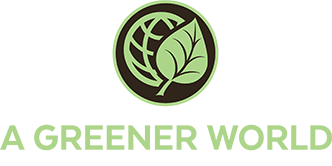Putting Your Best Foot Forward
Once you are certified by A Greener World, we can guide you through the labelling approval process. Our labelling team will work with you to incorporate your certification logo, ensuring a branded, attractive label that reflects your farm values and helps to set your products apart. There is no charge for this service for certified farms.
Why are labels important?
Many of us make the mistake of believing that we don’t need a label, either because we assume high-quality products should “sell themselves” or because we feel that other marketing strategies are more important. But while a comprehensive marketing plan is essential to any business, the reality is that having a good product label is actually more important than ever. Label claims are the building blocks of food marketing and your label will dictate which claims you are legally approved to make.
Even farmers with limited sales are part of a much bigger and ever-changing labelling landscape. Shoppers who visit farmers’ markets are still likely to visit the mainstream grocery stores. And as public interest in ethical products grows, other food businesses both large and small are seeking to capitalise on this new and growing market.
Unfortunately, this is also leading to the increasing use of confusing and sometimes misleading animal welfare and environmental labelling claims in the marketplace, some which mean very little. So, if you’re a pasture-based farm, raising animals in a high-welfare system, how do you set yourself apart and ensure you are fully describing what you do? A good packaging label, supported by the AGW logo(s), will help to educate potential customers about the wide-ranging benefits of your farming system and why your products are worth paying for. A well designed, attractive label will also differentiate your products and allow you to stand out from the growing crowd.
Make the most of your label
A food label isn’t just about complying with regulations: it’s also a vital marketing tool. Your label is an introduction to your farm and an opportunity to provide potential customers with information that will help them to feel good about buying your product. We all know that consumer demand for “ethical” food is on the rise, but what exactly are they looking for? And how can you prove that your product meets their expectations?
Understanding the consumer
A 2010 study by Context Marketing reports that in order to qualify as an “ethical food,” consumers felt the product must avoid harming the environment (93%), meet high safety standards (92%), use environmentally sustainable practices (91%), avoid inhumane treatment of animals (91%) and be produced according to high-quality standards (91%). The study also showed that 69% of consumers are willing to pay more for food produced to these higher ethical standards. So how can you communicate your ethical practices to your customer, and highlight the value of how you farm?
What are your values?
First, you need to identify your own “ethical values” and how they influence your business and farming. Write down a list of your core values and how these are reflected in your day-to-day farming. For example, are you concerned about animal welfare and minimising the impact of your farming on the environment? Are your animals 100% grass-fed or pasture-raised? Think about anything you do which makes your system different from other farms, particularly industrial systems. Keep things positive and simple–messages that are clear, uncluttered and easily explained are most effective.
What do your customers want?
Next, try to consider what values or issues will be of interest to your customers. We already know that ethical consumers are mainly concerned about minimising their impact on the environment, sustainability, high animal welfare and food quality. Is there any common ground? What key messages can you communicate about your farming practices that will match your customers’ values? What does your product do for your customers and/or the wider community?
Keep it real—and simple
Once you have identified shared values it is important to make sure that any claims you intend to use on your label accurately reflect your farm and comply with existing regulations. The AGW labelling service team can help ensure that your label is accurate and compliant.
Providing accurate information on your label is not just the law, it’s also part of your integrity. We’ve all read the various media stories about misleading labels. Aside from being illegal—and potentially resulting in fines and legal costs—making false claims can seriously undermine trust in you and your products.
Focus your communication efforts on highlighting these core messages on your label, marketing materials and website. Telling your story is important, but remember: the front of your label is all about the initial impact and clear, simple marketing messages are most effective. Try to keep detailed or complex explanations of how you farm or your philosophy as supplemental information, easily available to more interested customers (for example, on the reverse of the package, in your leaflets or on your website).
A Greener World can offer support in incorporating our logo(s) onto labels of certified products and facilitate approval of label claims associated with AGW certification.
